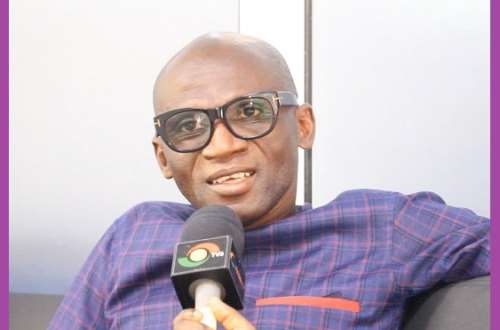Ghanaian athletics legend Emmanuel Tuffour has decried the fallen standards of the sport in the country despite the abundance of talents on the local scene.
He wants the country's athletes and officials to refocus and give the sport more attention as a matter of urgency to halt the decline.
He observed that the inadequate infrastructure and lack of motivation had been the drawback to the country winning laurels on the international stage, and expressed the belief that until these things were addressed the future would continue to be bleak.
Speaking to the Graphic Sports in an interview yesterday the 57-year-old retired sprinter was emphatic in his assessment of the state of athletics in the country, stating that the standard had fallen below that of his era.
“Athletics in Ghana now is not coming up but what I’ll say is some individual athletes are doing well right now but if you put everything together, it’s not like our time. I don’t see any improvement in Ghana athletics right now”, he said.
In his heyday, Tuffour once held the national men's 100 metres record of 10.07 which he set in 1994 and represented Ghana at three Olympic Games. He was a member of the 4x100m relay team that won gold for Ghana at the 1995 Africa Games in Harare, Zimbabwe.
Affectionately called “Koora” by the athletics community in Ghana, Tuffour did not hide his disappointment about Ghana’s performance at the recent World Athletics Championship in Budapest, which saw Ghana's representatives in the men's 200m, Joseph Paul Amoah and James Dadzie, failing to advance past their heats following injury setbacks.
The injuries by the two sprinters, both members of the relay team, resulted in Ghana's decision to withdraw from the 4x100 metres due to their inability to raise a team for what was expected to be Ghana's strongest event at the competition.
Ghana's other representative, Deborah Acquah, failed to advance to the final of the women's long jump event as she fell short of the automatic qualification mark.
For Tuffour, Ghana's predominantly foreign-based athletes must start focusing on improving on their times, while the government and authorities in Ghana must address the infrastructure deficit and other support systems to harness the full potential of talents in the country.
He was of the opinion that the country’s athletics could get better if the right infrastructure was put in place and suggested that corporate bodies must support the government’s effort to provide the needed facilities for the development of athletes.
“We don’t have good facilities here but when our athletes get to the US, with the school facilities and everything we’ll get better.
Furthermore, Tuffour offered a proactive approach to Ghana's preparations for the upcoming African Games, emphasising that timely planning and training were vital components for success.
Waiting until the last minute, he noted, would hinder Ghana's ability to secure medals in a competitive field comprising countries like Botswana, South Africa, Kenya and Ethiopia.
“Next year is the African Games and the preparation should start now because if you want to win a medal you won’t take two or three months to train and win a medal because all these countries are coming. Botswana, South Africa, Kenya and Ethiopia.
“They [athletes] are all disappointed in their performance at the World Championship so they are hungry for medals to prove to their country that they are still the best,” Tuffour said.
Highlighting a worrisome trend, Tuffour expressed his concern that while other African nations were enhancing their domestic training facilities, Ghana remained heavily reliant on external assistance. He underscored the importance of improving facilities within the country to nurture top-tier athletes.
“Our population is over 30 million, and we are about double the population of Jamaica but just see how they are competing, and they train in Jamaica, the Kenyan guys train in Kenya, the Botswana guys train in their country but if you stay in Ghana, you can’t do anything,” Tuffour lamented.

